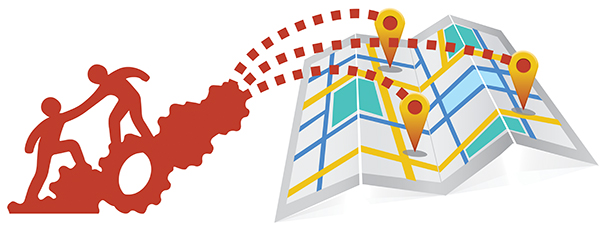The Big Data to Knowledge (BD2K) Training Coordinating Center (TCC) based at the USC Mark and Mary Stevens Neuroimaging and Informatics Institute has launched a new program called the Data Science Rotations for Advancing Discovery (RoAD-Trip) program, with the intention of encouraging new collaborations among junior biomedical researchers and more senior-level data scientists.
The program is seeking applications, due Sept. 2, from junior-level investigators with compelling biomedical data sets. These researchers will be matched with senior-level data scientists with mentoring skills, access to data science technology and computational resources to assist with novel data analyses.
With support provided by the TCC, the young biomedical investigators will “take to the road” for a minimum two-week scientific residency at leading U.S. research universities to work with senior data science faculty based there.
Only 10 fellows and 10 mentors will be selected for this highly selective program.
“The RoAD-Trip will bring young biomedical and established data scientists together to share individual expertise and collaborate on new areas of biomedical research which may lead to a variety of exciting opportunities: a presentation at a national or international conference, a new grant proposal, or a new peer-reviewed publication,” said John Van Horn, PhD, BD2K TCC principal investigator and associate professor of neurology at the Keck School of Medicine of USC.
Through the RoAD-Trip program, junior investigators will blaze new trails on vital and important new research journeys while senior data scientists encounter novel species of data ripe for advanced computational modeling, analysis and exploration.
Example datasets from potential fellows might include genetic, protein structure, molecular, neuroimaging or any other “-omic” data type which might relate to the understanding of a biological system, process, or give insights into health or disease. These might be subjected to new and sophisticated computer science approaches for machine learning, time-series analysis, network modeling or 3D visualization.
RoAD-Trip fellows will be reimbursed up to $4,000 in funding to pay for airfare, hotel and per diem and to help defray living expenses during the two-week-minimum data science research training experience. Mentors will receive a $1,000 honorarium for their participation after the research project has been successfully completed.
To apply for this opportunity, go to http://www.bigdatau.org/roadtrip.
— Crystal Stewart


